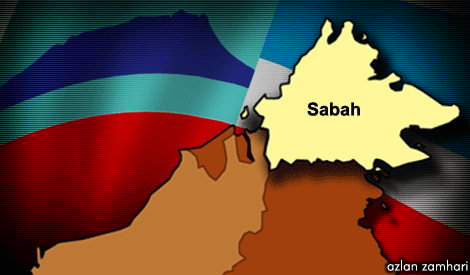Original Sabahans came before any gov't
LETTER | In law, Original Sabahans were the first people who settled down in the emptiness and vastness of the geographical north Borneo i.e. by right of first settlement and worked the land to establish historical and ancestral property rights by adat. Their descendants are also Original Sabahans.
Original Sabahans came before any government. Their ancestral and historical property rights are protected by adat based on customary practices which have the force of law and by Article 5's "right to life" under the Federal Constitution.
The Original Sabahans are covered by Article 161A of the Federal Constitution. According to Article 161A of the Federal Constitution, only indigenous (Orang Asal) people are native.
According to the Native Interpretation Ordinance, all Orang Asal are native (anak negeri) but not all natives are Orang Asal. Those non-Orang Asal who are native are those not subject to immigration restrictions i.e. they were here before the Immigration Act 1959/1963.
The Native Interpretation Ordinance, an inferior law, is null and void to the extent of its inconsistency with Article 161A of the Federal Constitution, the superior law. The ordinance is a colonial decree. The Kadazan, Dusun and Murut are the Orang Asal in Sabah. This can be seen from the word "indigenous" in Article 161A and the ordinance. In Sarawak, the Orang Asal are listed in Article 161A by each group.
The problem of citizenship among the indigenous people, i.e. the Orang Asli in Malaya and the Orang Asal in north Borneo and Sarawak, can, in fact, be resolved by reference to Article 161A of the Federal Constitution and the Aboriginal Affairs Act and/or the Jabatan Hal Ehwal Orang Asli in Malaya.
Malaysia should gazette a policy on indigenous people who are stateless. Again, an indigenous person is the descendant of an indigenous person. The laws on citizenship in Malaysia can’t be changed. There’s no need to change them. They are up to date and watertight.
Still, the government does have discretionary powers - if children are below 21 years of age - to accord citizenship under Article 30 i.e. Certificate of Citizenship in doubtful cases. Citizenship in Malaysia is under the Federation of Malaya Independence Act 1957, the Federal Constitution and the Malaysia Agreement 1963 (MA63).
The Federal Constitution is a social contract between the state and the people. The original citizens exchanged British status for Malayan and Malaysian citizenship. Their descendants are also citizens. Citizenship in Malaysia is by descent from a citizen i.e. jus sanguinis. There’s no jus soli (birthright) citizenship in Malaysia.
The government and the courts cannot be parties to illegalities. The law is about proof of parents. If there's no marriage certificate, the child of a foreign mother and a Malaysian father will not get a local birth certificate stamped “Malaysian status”.
This is where a DNA test comes in. There’s recent case law on this. So, there’s no need to amend the constitution to include DNA tests. If the unmarried mother is Malaysian, her child will get a local birth certificate stamped “Malaysian status”.
No one can claim to be stateless in Malaysia unless the status is confirmed by the foreign government concerned. Again, there’s recent case law on this. If the question of a foreign government confirming an individual as stateless does not arise, then that person is entitled to citizenship in Malaysia.
The Mobile Court in Sabah decides on doubtful applications, not the Home Ministry. Other than the Mobile Court, the Federal Court can decide. The Federal Constitution decides on citizenship status, whether Malaysian or foreigner.
Locals won’t benefit if citizenship is given to foreigners. Citizenship means voting rights. Locals will lose their sovereignty if foreigners get citizenship. Foreigners don’t need citizenship to stay in this country.
The writers represent the Borneo's Plight in Malaysia Foundation (BoPiMaFo) and the Gindol Initiative for Civil Society Borneo respectively.
The views expressed here are those of the author/contributor and do not necessarily represent the views of Malaysiakini.
RM12.50 / month
- Unlimited access to award-winning journalism
- Comment and share your opinions on all our articles
- Gift interesting stories to your friends
- Tax deductable
